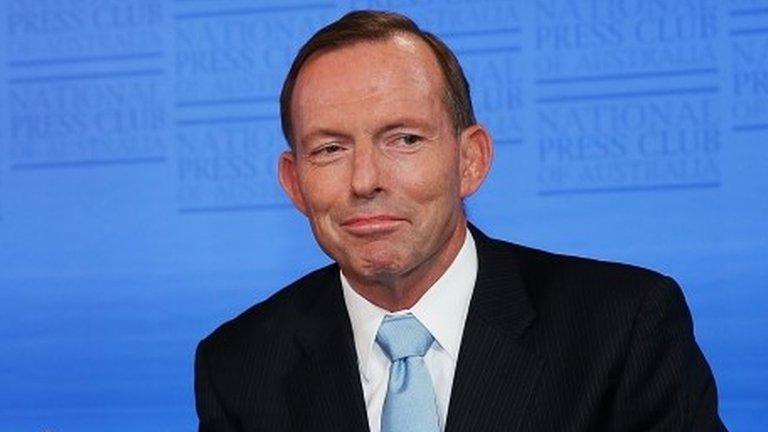Australian politics: Why is it so tumultuous?
- Published
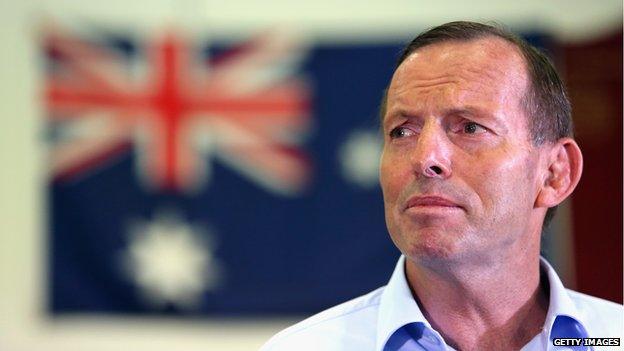
Tony Abbott made it through a confidence vote in his leadership of the Liberal Party on Monday
A quarter of a century ago, amid another political leadership crisis in Australia, the man who would be the next prime minister told a room full of reporters: "Leadership is not about being popular. It's about being right and about being strong."
Paul Keating went on to unseat long-standing Labor leader Bob Hawke and take the nation's top political post.
"It's about doing what you think the nation requires," he said shortly before Christmas in 1990 at Canberra's National Press Club.
In echoes of the past, current Prime Minister Tony Abbott has been forced to defend his leadership over the last fortnight. Even senior Liberals like former Victorian Premier Jeff Kennett have warned his reign is now terminal.
"In the end government is not a popularity contest, it's a competence contest," Mr Abbott said as he faced plunging opinion polls and a staggering loss for his Liberals in Queensland elections.
So, after Mr Abbott was forced to face down a challenge to his leadership in his party room on Monday, what has changed in the intervening 25 years?
Everything and very little, say the experts.
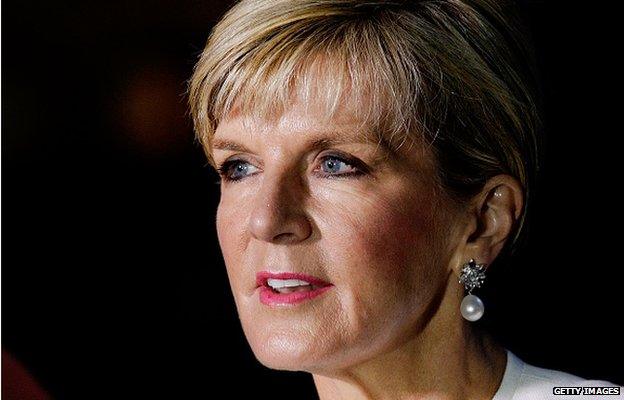
Foreign Affairs Minister Julie Bishop, who is the deputy leader of the Liberals, is seen as one of the contenders for Mr Abbott's post
The advent of the 24-hour news cycle, the rise and rise of social media commentary, and the fragmentation of ideology have all contributed to a political landscape unknown to Australian governments of the past.
According to Dr Ian Tregenza from Sydney's Macquarie University, the era of three-hour speeches and lengthy public discourse about policy has passed.
"It's rather different now, only in the sense that the media environment is quite different and the sheer pace of politics now and the oppositional dynamic that has developed," he says.
"Our attention span as an electorate is much less than it was."
While broken promises have always been a feature of politics, there were times when ideological stability was more the norm, such as during the 1950s, 1960s and into the 1970s when the Cold War united voters and politicians.
Since then, there has been a "fragmentation of ideology", Dr Tregenza says.
"If you look at any politician, they're all over the place ideologically," he says.
On social media, "everyone's encouraged to think they have an opinion worth listening to", he says.
"We all operate within this new globalised world and both sides are responding to that," he adds.
But he says Australia is currently experiencing a "period of volatility".
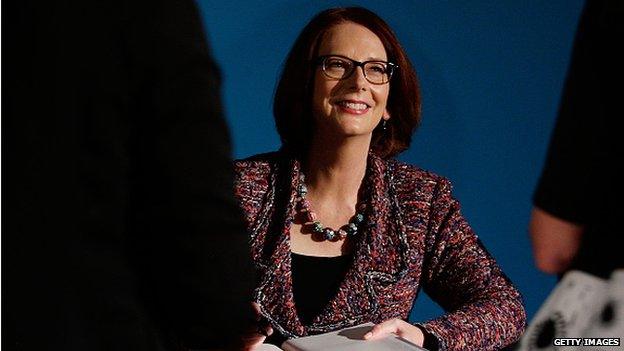
Labor saw a similar upheaval in 2013 when then-PM Julia Gillard faced two leadership spills
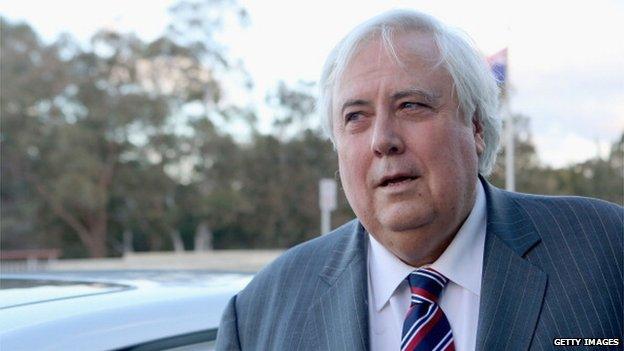
Tycoon Clive Palmer leads the Palmer United Party, which the government has relied on to pass legislation
Much has also stayed the same, says Dr Stewart Jackson, a lecturer at the University of Sydney.
"It's not as though this is so unusual that there has been leadership speculation," he says.
In the 1980s, the Liberal leadership ding-donged between Andrew Peacock, John Hewson and John Howard.
John Gorton also succumbed to a challenge in the early 1970s. "It's, in fact, a feature of the Westminster system that we have this," Dr Jackson says.
If Australia had a presidential system, such contests would not exist.
Dr Jackson says the two-party system has been dented by the increasing influence of minor parties - from the Democrats and Greens through to the Palmer United Party - but it is not dead.
If Labor and the Coalition cannot rejuvenate their primary vote, there would simply be more hung parliaments in future, he says.
While the current leadership crisis unfolds in the nation's capital and commentators scramble to unpick the political rout in Queensland ahead of a March poll in Australia's most populated state, New South Wales, the fundamentals remain the same.
"People are still mostly happy with Australian democracy," Dr Jackson says.
"Most people are comfortable with the form of politics that we have."
- Published6 February 2015
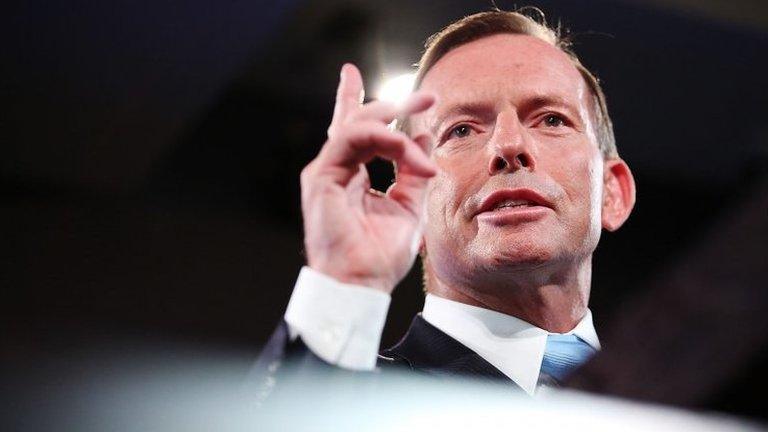
- Published6 February 2015
